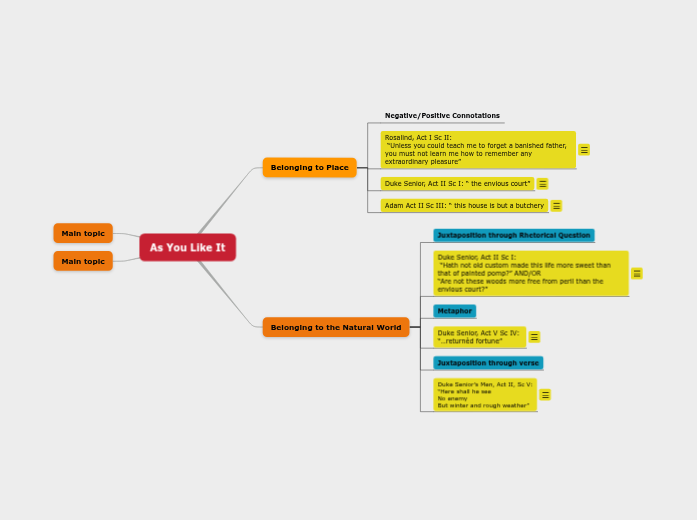作者:Aleksandr Thwaite 10 年以前
334
New Map
The text delves into the themes of belonging and alienation as portrayed in Shakespeare's "As You Like It." It contrasts the natural world with the material world, questioning where true belonging lies.

作者:Aleksandr Thwaite 10 年以前
334

更多类似内容
Through song/verse, Shakespeare presents the favourable image of the forest, subtly suggesting that there are worse enemies within the court.
This ‘fortune’ is a great gift: the gift of being able to return to the court and their other material belongings. Through this metaphor,Shakespeare highlights the sense of belonging he himself truly finds at court-so is it in the natural world, or the material world that we truly find belonging.
By asking this of the audience (presenting juxtapositionwithin question), Shakespeare is persuading/positioning them to believe thatexile/the natural world is preferable to court.
Negative connotations re:Orlando’s home (not Adam’s!)- ‘butchery’ highlights the peril provided within.
Envious’ provides a negative connotation about his home inparticular referencing the ‘envy’ of his brother that resulted in his exile,again alienation.
Negative connotations to current ‘home’ – she has no pleasure due to her father’s absence = sense of alienation.